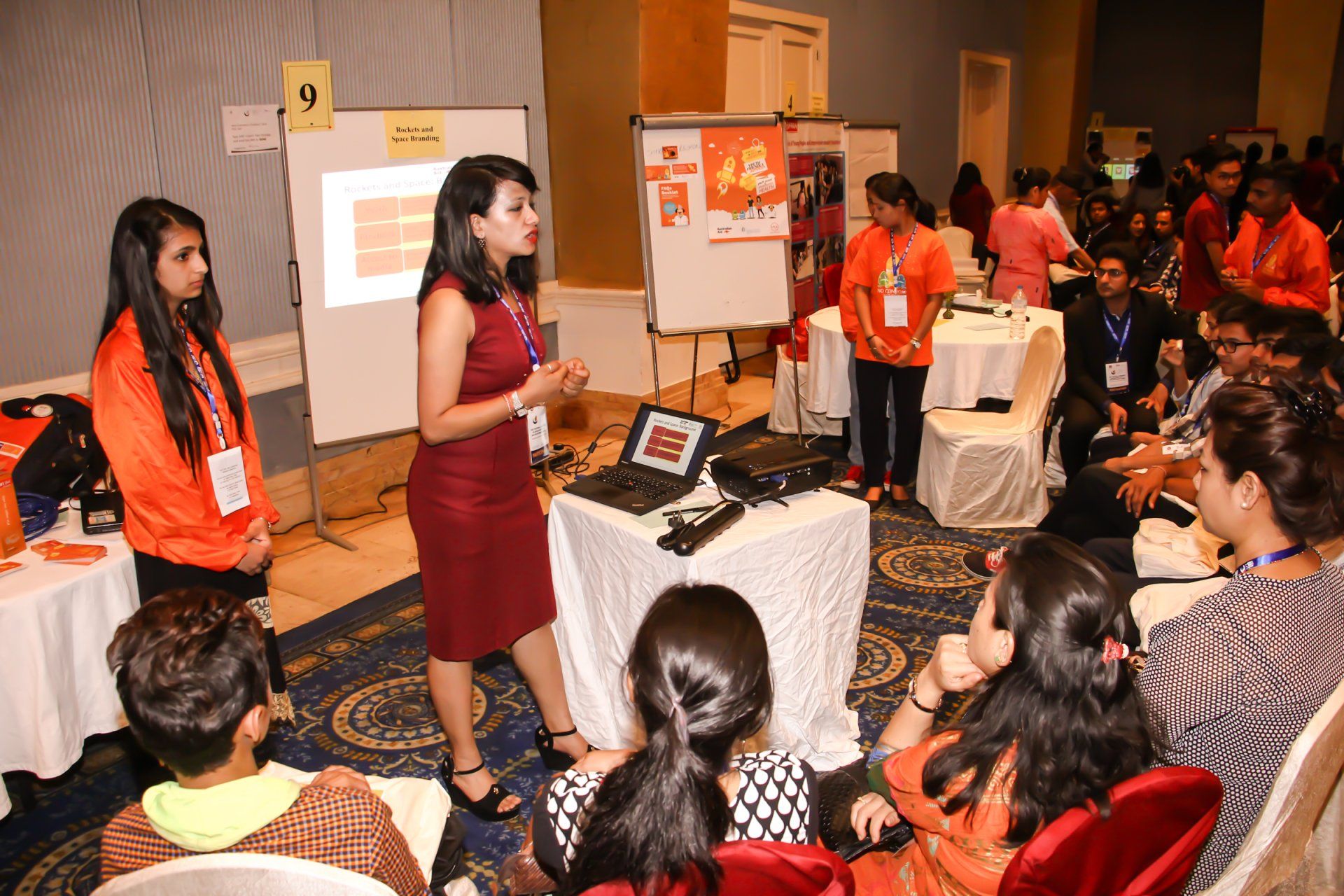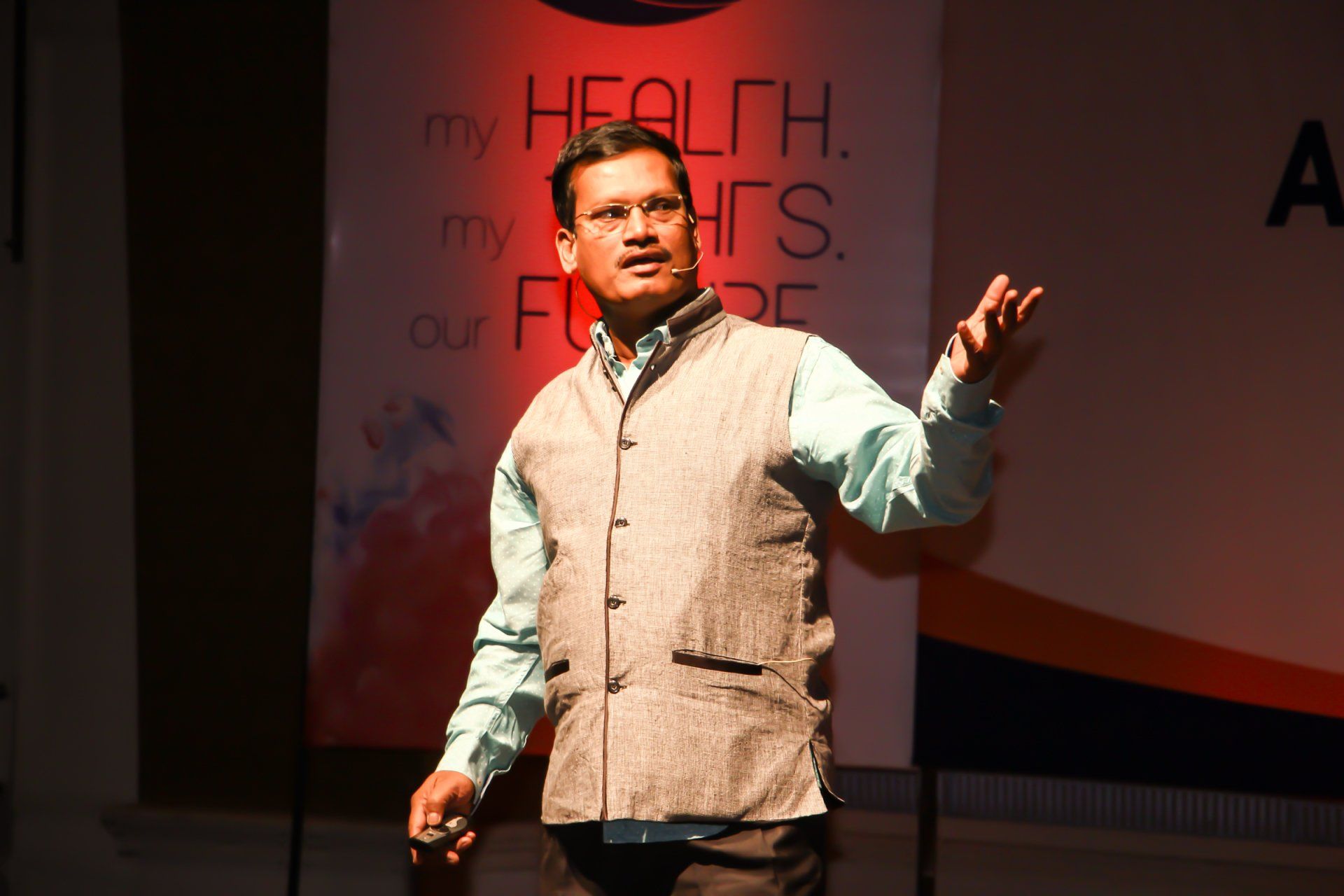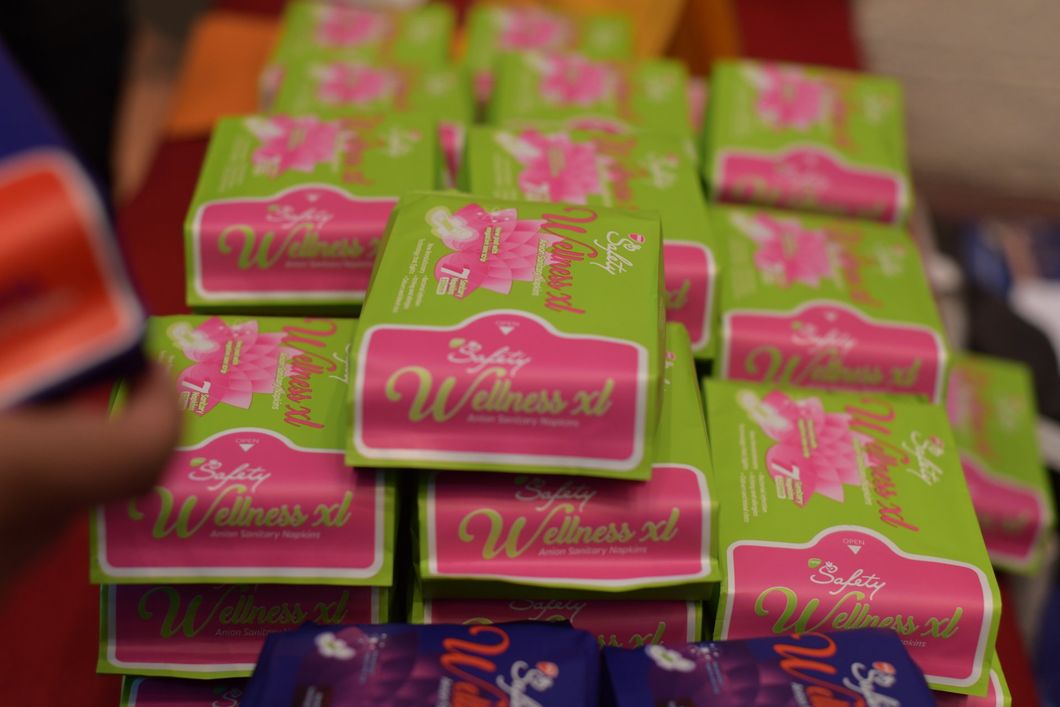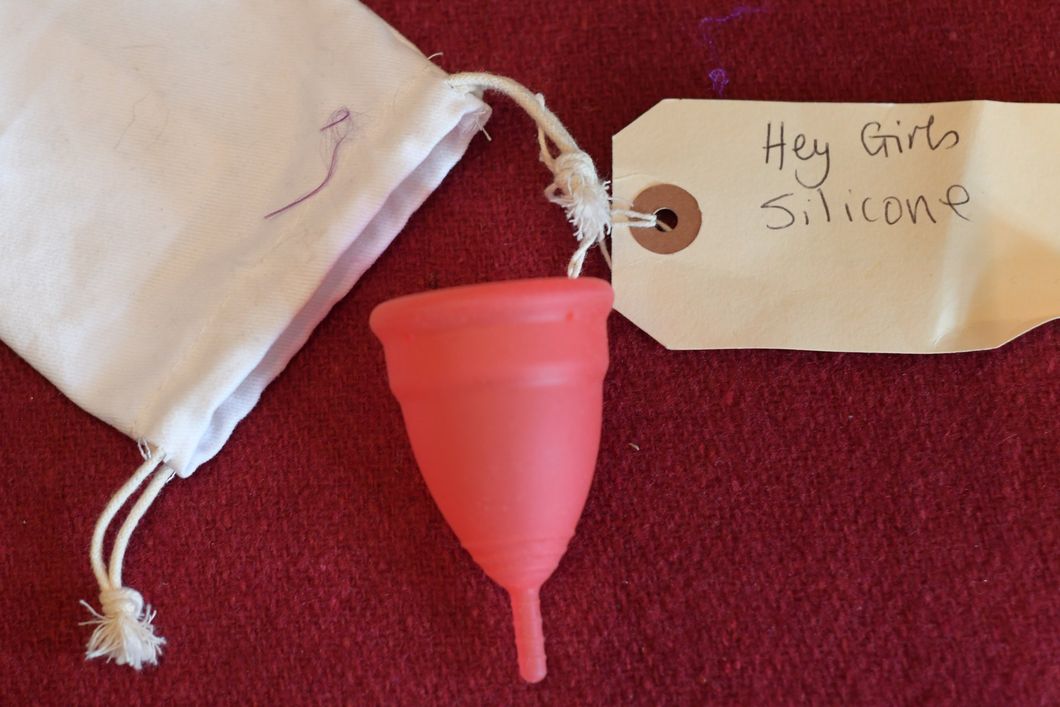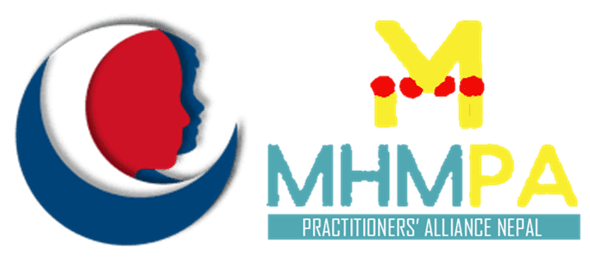
my Health. my Rights. our Future
MenstruActionNo time to rest: Ensuring every girl in Nepal can thrive on her period.
December 11, 2018
Hotel Yak&Yeti, Kathmandu, Nepal
Discover

MenstruAction
‘No time to rest: Ensuring every girl in Nepal can thrive on her period’ was Nepal’s first ever consultative workshop on menstrual health. Co-hosted by GIZ and the Menstrual Health Management Alliance, the workshop took place on December 11, 2018 at Hotel Yak&Yeti in Kathmandu, Nepal.
The workshop brought together over 350 participants including policymakers, practitioners, creators, private sector actors, researchers, adolescents, youth and the media. The goal of the workshop was to build a strong multi-sectoral, evidence-based collaboration on menstrual health management (MHM) by positioning it as a holistic health and rights issue. It initiated pledges, national policies and strategies, in accordance with the SDGs, to advance and achieve better menstrual health management for girls and women in Nepal, so that every girl and woman can thrive on her period.
Background
Although menstruation is a natural process that signals a girl’s entry into womanhood, in many low-income countries such as Nepal, millions of women and adolescent girls face significant challenges when it comes to managing menstruation hygienically and with dignity, security and confidence. Nevertheless, in the past few years Nepal has experienced a growing awareness about the health, education and social consequences for girls and women of poor menstrual hygiene and harmful menstrual practices.
Cultural constraints, lack of access to accurate information, and lack of facilities and suitable sanitation in schools and homes can restrict menstruating women and girls from participating fully in society. Social, cultural and religious factors and taboos also play a strong role in influencing attitudes and beliefs about menstruation. In addition, the high cost and lack of availability of sanitary pads mean that women have to rely on less hygienic options, such as rags, ashes or dried leaves. As a result, menstruation can often be a traumatic process.
A Chhaupadi experience
An interactive video to understand Chhaupadi from the perspective of a girl from rural Nepal.
The consultative workshop on MenstruAction
On December 11 2018, the Menstrual Health Management Alliance, in collaboration with the Federal Government of Germany through the GIZ coordinated ‘Support to the Health Sector Programme (S2HSP)’, hosted a national workshop in Kathmandu, Nepal. The workshop ‘MenstruAction. No time to rest: Ensuring every girl can thrive on her period’, built upon the first national conference on adolescent Health and development ’my Health. my Rights. our Future', held in Nepal in 2016. It reflected on the achievements by the Menstrual Health Management Alliance and asked how the different organisations in the alliance can better work together to improve menstrual health management in Nepal and globally. It brought together Nepal’s leading policymakers, practitioners, researchers, creators, private sector actors , adolescents, youth and the media. There were discussions on how to advance the agenda and what it will take to design and deliver effective menstrual health management and development packages, as a shared aspiration and responsibility for the future.
Methodologies
Technical working groups
Prior to the workshop, we formed five technical working groups (TWGs) in order to stimulate and direct the discussion on how to design and deliver effective menstrual health management in Nepal:
TWG 1: Awareness, Education and Learning
TWG 2: Policy and Advocacy
TWG 3: Inventions/ Innovations and Sustainability
TWG 4: Research and Analysis
TWG 5: Water, Sanitation and Hygiene and menstrual health management
These technical working groups came together and presented their findings, action plans and pledges at the workshop.
Who we are
The Menstrual Health Management (MHM) Alliance
The MHM Alliance is a national network founded in 2017 with over 50 organisational members covering around 80 initiatives. The Alliance works on awareness/advocacy, education, policy development, innovation and research around menstrual health and hygiene in Nepal. It is an inter-sectoral, inter-professional, multi-stakeholder platform for the coordination and exchange of ideas aimed at engaging actors around MHM initiatives. The Alliance positions itself as an advisory network for the Government of Nepal and facilitates knowledge management for decision making, promoting the MHM agenda at national and sub-national levels.
GIZ Nepal and the Adolescent Health component
German Cooperation improving menstrual health and dignity in Nepal
Since 2015, GIZ’s ‘Support to the Health Sector Programme’ has been working closely with the Government of Nepal to address menstrual health through interventions that include (among other strategies) school-based education and the manufacturing of reusable and disposable low-cost sanitary pads. Under the umbrella of both the Ministry of Health and Population and the Ministry of Education, this programme started with over 500 schools in the 14 districts most affected by the earthquake, as well as other districts in the Mid and Far West Development Regions. It aims to raise awareness and break down the taboos surrounding menstruation by training teachers and health workers to address these issues and by better educating both girls and boys about MHM. The programme teaches pupils how to make reusable sanitary pads and has assisted with the setting up of community-led social enterprises to produce 'low cost' sanitary pads and provide employment and income for local women.
GOAL
The goal of the workshop was to build a strong multi-sectoral, evidence-based collaboration on MHM by positioning it as a holistic health and rights issue. It aimed to fill the current gaps in adolescent health and development by focusing on existing knowledge and advocacy around important issues surrounding the onset of menarche, menstrual health, sustainable menstrual hygiene and protection against ‘period poverty’. Ultimately, it initiated pledges, national policies and strategies, in accordance with the SDGs, to advance and achieve better menstrual health management for girls and women in Nepal, so that every girl and woman can thrive on her period.
Main Objectives
01 Provide
To provide a multi-sectoral platform for discussing and building a common understanding, identifying gaps and opportunities, and developing the way forward for MHM in Nepal
02 Serve
To serve as a platform for information exchange and the coordination and alignment of efforts around MHM between various organisations and actors
03 Promote
To promote analysis, dissemination and the use of sound MHM evidence for decision making
04 Share
To share scientific evidence, as well as regional and country-specific experiences with current strategies and interventions and local initiatives for MHM, and to include the voices of girls and women in the discussion to understand their lived experiences of MHM in Nepal
05 Showcase
To showcase innovations including through an ‘innovation fare’ on menstrual products to be held at the consultative workshop
06 Establish
To establish strategic partnerships between the different technical working groups and other actors on the seven thematic areas, and to prepare specific action plans for the technical working groups for 2019/2020 (and the next five-year period) and present them at the workshop
07 Collaborate
To promote collaborative, systemic impact around menstrual health and hygiene in Nepal
Key Areas
There were technical working groups on seven key areas:
Awareness & advocacy
Focusing on awareness-raising projects on MHM and advocating for change at individual, societal, community and governmental levels | discussing how to create more wide-ranging awareness campaigns on menstrual health and good practice
Education & learning
Looking into education programmes that have addressed MHM in schools and communities | creating an opportunity for organisations to present key findings and learnings from such programmes | providing an arena in which to discuss areas that need attention in education
Innovations on menstrual products
Looking at the availability, affordability and provision of menstrual products in the market | discussing the need for innovation in menstrual products | addressing key areas relating to the environment, levels of recyclability and waste disposal
Policy, laws & regulation
Assessing current laws, policies and strategies on MHM | providing feedback on national resolutions made by the government | coming up with concrete plans to develop new policies and laws
Water, sanitation & hygiene
Looking at what is next for WASH in schools, communities and Nepal in general | working out how good menstrual health practices can be linked with hygiene and safe water supplies
Research & analysis
Discussing current research and key findings on MHM | looking for new research programmes on areas missing in the literature: such as menstruation products, mental health and disability related to MHM
Menstrual health management
Looking at menstruation as a health-based issue that should be addressed through health policy and planning
Participants
The consultative workshop on MenstruAction brought together over 350 participants including the following:
• MHM Alliance members
• Policymakers from the Government of Nepal and other countries
• Youth leaders and activists on MHM
• International and national advocates – MHM ambassadors and celebrities who support girls and women
• Practitioners from different national and international development cooperation organisations
• Practitioners from Nepal and partner countries, as well as international development partners
• Academic experts and leading thinkers
• Private sector actors
• Creators
• Media
• National and international innovators
One-day event with following format
• Keynote speech
• Talk show/ panel discussion (e.g., Sajha Sawal format)
• Outbreak sessions: Technical Working Groups in seven thematic areas
• Technical Working Groups present findings and pledges
• Exhibition: art corner, photography, films, innovative bazaar, arts & crafts, painting theatre (exhibiting products and programmes originating out of MHM initiatives)
• Talk show/ panel discussion (e.g., Sajha Sawal format)
• Outbreak sessions: Technical Working Groups in seven thematic areas
• Technical Working Groups present findings and pledges
• Exhibition: art corner, photography, films, innovative bazaar, arts & crafts, painting theatre (exhibiting products and programmes originating out of MHM initiatives)

